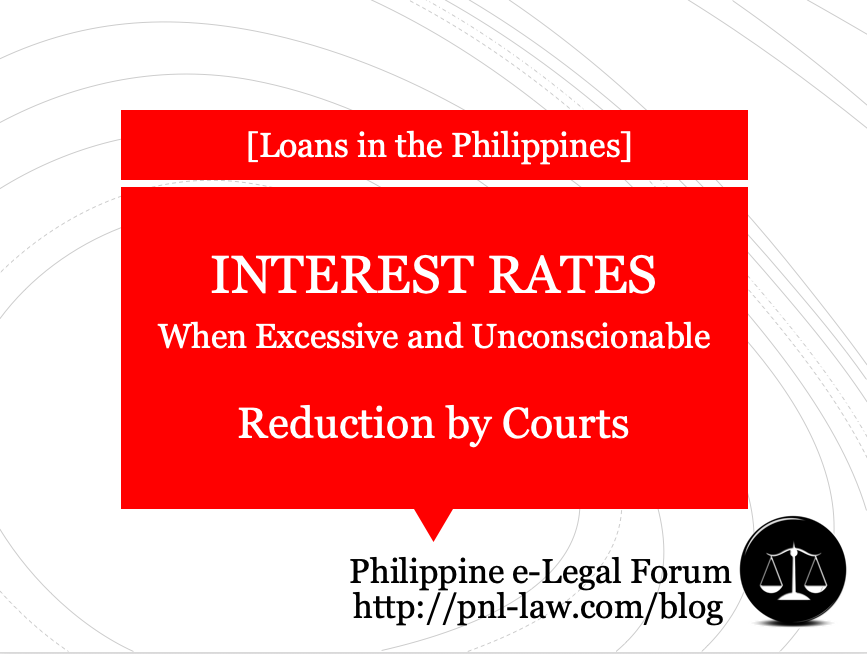Everybody knows about “5-6” and similar lending schemes. Everybody also knows that, ironically, those who are in financial trouble are forced to accept ridiculously high interest rates – which, in many (almost all?) instances, leads to more trouble (financial or otherwise).

Indeed, with the suspension of the Usury Law and the removal of interest ceilings, the parties are free to stipulate the interest rates to be imposed on monetary obligations. However, while the Supreme Court (SC) recognizes the right of the parties to enter into contracts, this rule is not absolute.
In the case of Trade & Investment Development Corporation of the Philippines vs. Roblett Industrial Construction Corporation (G.R. No. 139290, 9 May 2006), the SC again dealt with the validity of an interest rate agreed upon by the parties. According to the SC, stipulated interest rates are illegal if they are unconscionable and the Court is allowed to temper interest rates when necessary. In exercising this vested power to determine what is iniquitous and unconscionable, the Court must consider the circumstances of each case. What may be iniquitous and unconscionable in one case, may be just in another.
For instance, in Garcia v. Court of Appeals [1988], the SC sustained the interest rate of 24% per annum.
The agreed interest rate of 21% per annum was also sustained in Bautista vs. Pilar Development Corporation [1999].
On the other hand, in Medel vs. Court of Appeals [1988], the SC voided the interest rate of 5.5% per month (or 66% per annum) on a P500,000.00 loan, the same being “excessive, iniquitous, unconscionable and exorbitant, hence, contrary to morals (“contra bonos mores”), if not against the law.”
In Development Bank of the Philippines vs. Court of Appeals [2000], the SC reduced the stipulated interest rate from 18% to 10% per annum.
Now, going back to the case of Trade & Investment Development Corporation of the Philippines, the SC reduced the interest rate from 18% per annum to 12% per annum. The SC noted, among others, that the amount involved in that case has ballooned to the outrageous amount of more than 45 Million Pesos, which is four times the principal debt.
Again, remember that the validity of interest rates must be determined on a case to case basis. [See also Usury and Unconscionable Interest Rates for Loans in the Philippines]
- Twin-Notice Rule and Procedural Requirements in Employment Termination Proceedings - June 3, 2020
- When Travel Pass is Needed for Interzonal Travel during Community Quarantine - June 1, 2020
- Can Companies Compel Employees to Work during the General Community Quarantine (GCQ) and Impose Disciplinary Sanctions - May 29, 2020

Good afternoon, Atty.
the BANK is charging its consumer of STORAGE FEE for un-released docs. Is this too excessive and unconscionable in the part of customer/client? It should be the responsibility of the Bank (Lender) to fast track the release of the documents of the consumer once the mortgage is fully paid?
Pingback: Usury and Unconscionable Interest Rates for Loans in the Philippines » Philippine e-Legal Forum